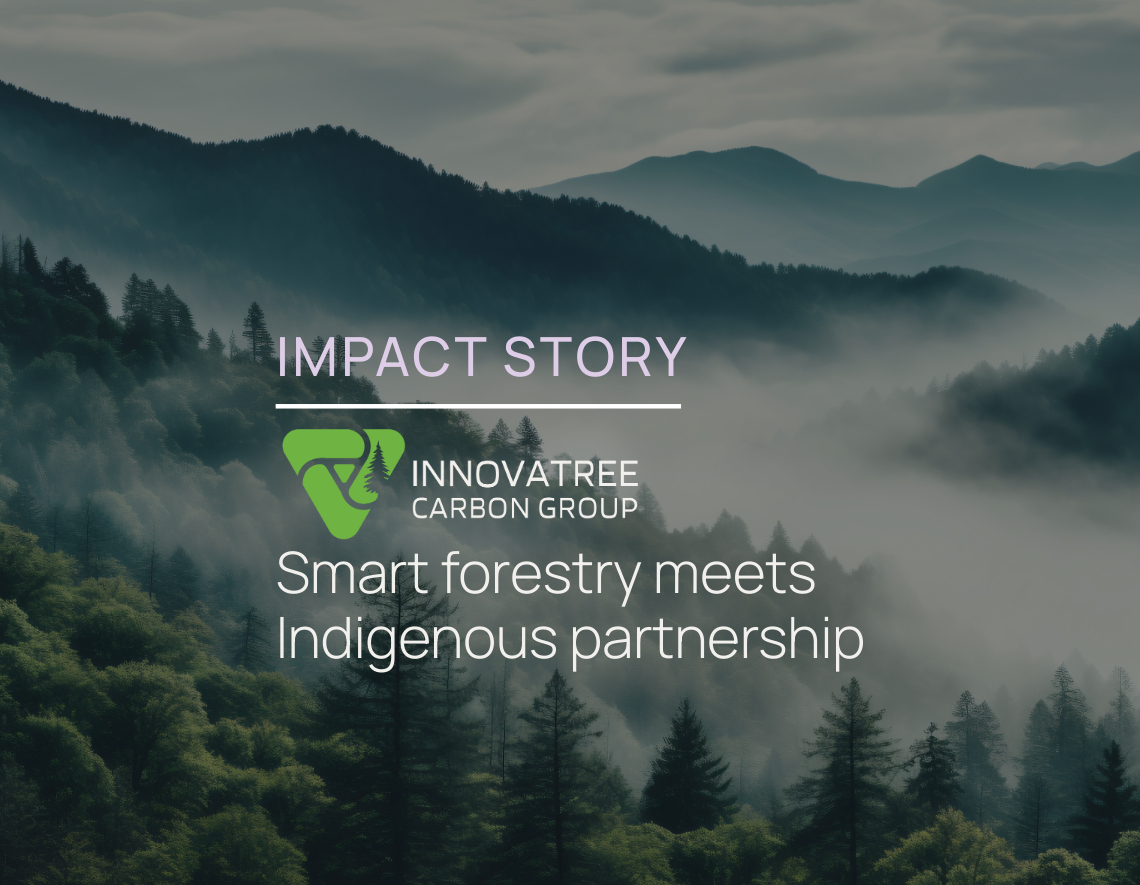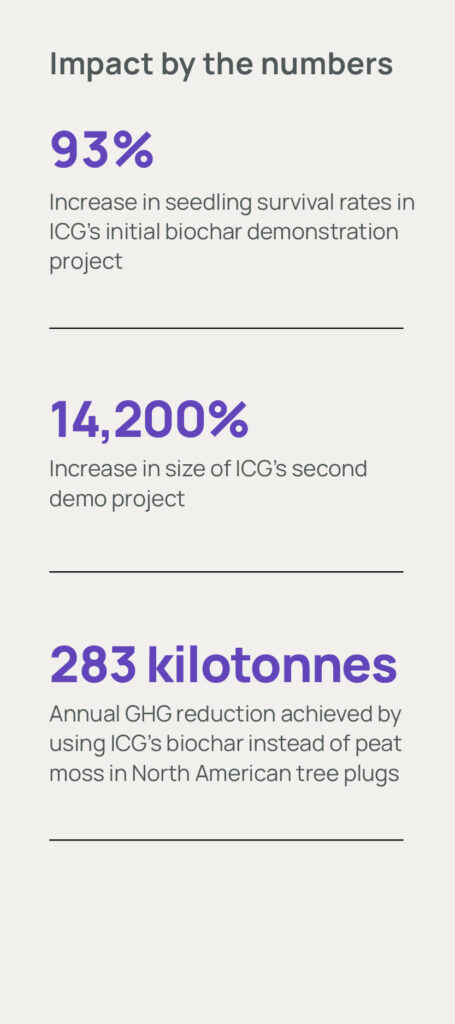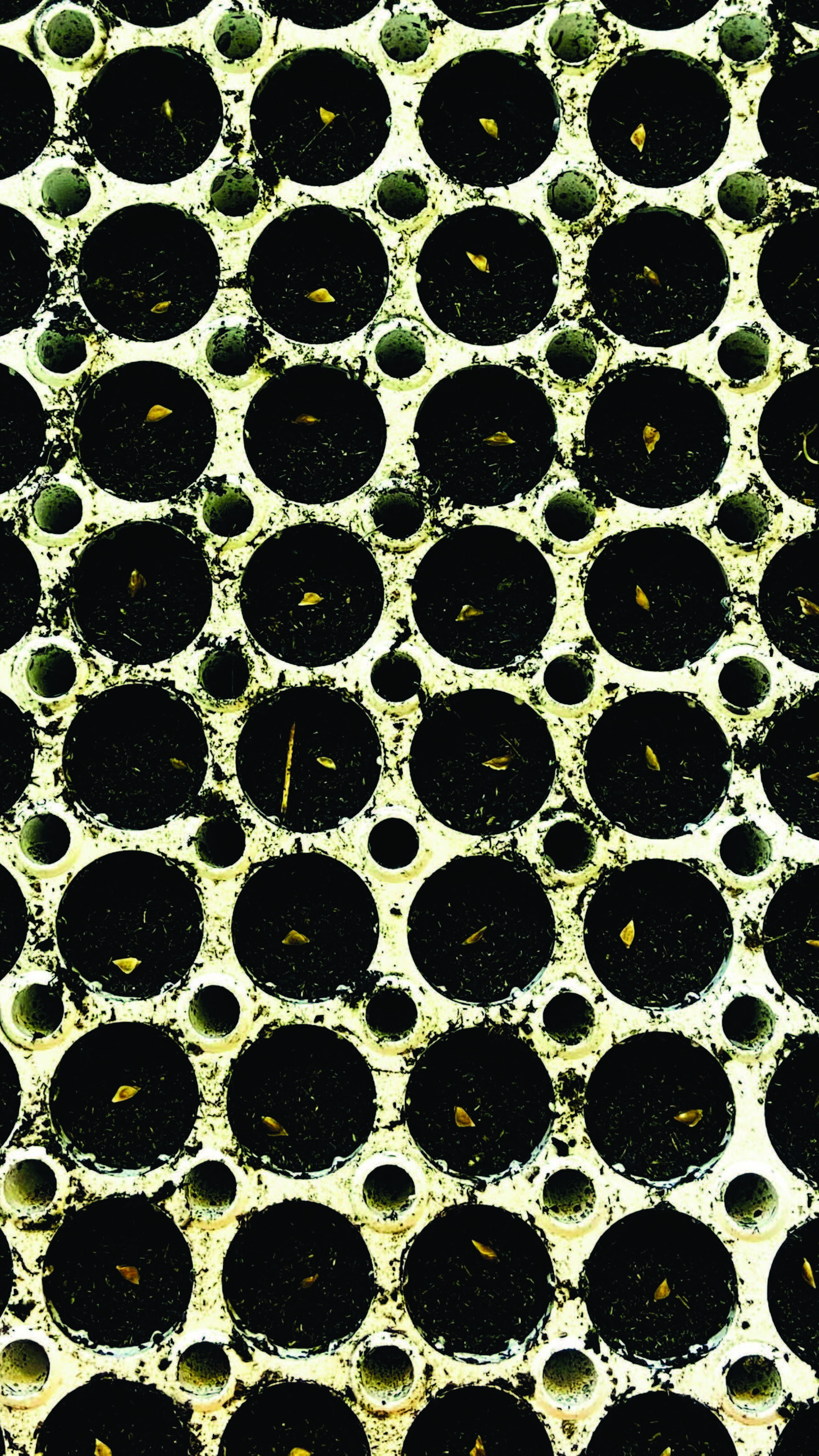

It will take a tremendous amount of hard work and collaboration for Canada to achieve its unprecedented tree-planting goals. But by working both harder and smarter, milestones can be reached sooner than planned, carbon dioxide removal (CDR) gains can exceed expectations, and Indigenous communities can be engaged like never before.
With First Nation-owned Second Pass Forestry as one of its co-founders, Kamloops-based Innovatree Carbon Group (ICG) is providing a prime example of using innovation to achieve these goals by developing and testing a proprietary “biochar” mixture derived from waste wood as a large-scale replacement for peat moss in nursery tree plugs.
From waste to decarbonization wins
“The forestry industry’s reliance on peat moss as a growing medium and soil amendment is problematic for two main reasons,” explains Garrett Whitworth, ICG’s Director of Canadian Operations. “For one thing, peat extraction in Canada releases more than 2 million tonnes of greenhouse gases (GHGs) per year. For another, peat moss performs poorly when tree plugs are planted in dry and/or wildfire-damaged soil, which in turn leads to escalating emissions and operational costs when replanting is required.”
ICG’s proprietary biochar mixture overcomes these challenges by retaining more moisture and nutrients than peat moss does, which improves seedling survival rates. At the same time, it converts the mounds of burning waste wood known as slash piles, which emit an estimated five million tonnes of GHGs a year in B.C. alone, into what Whitworth calls “one of the most effective carbon sequestering materials on the planet” with a lifetime of hundreds to thousands of years in the soil.

Scaling up to become an industry standard
As a team of environmental scientists, researchers and forestry professionals, ICG has been playing to its innovative strengths by developing its biochar. Now, it’s time to get noticed, validated and supported. “If we can demonstrate the benefits of our refined biochar on a scale that’s large enough to validate it to commercial nurseries and reforestation companies, using it will become an industry standard practice,” Whitworth says, adding that making the switch with the 1.6 billion trees nurtured annually in North America would reduce GHG emissions by more than 283 kilotonnes per year.
“But doing this is expensive, and until recently we were struggling to scale our biochar demonstration project. We did a small-scale project with a local nursery in 2023 where we achieved an 85 percent survival rate compared to 44 percent for peat moss. But it was only about a thousand trees, which isn’t enough to achieve widespread industry uptake.”
By “until recently,” Whitworth means before Nov. 14, 2023. On that day, ICG was one of four companies that split a $2.6-million non-dilutive investment from the B.C. Centre for Innovation and Clean Energy (CICE) to advance solutions that address the challenge of sustainably managing wood waste and increasing wildfire resiliency.
This investment has allowed ICG to secure the various permits required for the monitoring and analysis of 143,000 seedlings grown using its biochar at Tolko Industries’ Eagle Rock Nursery in Armstrong, B.C. Once this large-scale demo is complete in 2026, ICG aims to have its biochar approved by the Canadian Food Inspection Agency (CFIA) as a medium for seedling growth.
supportive in championing the successes we’ve had with our research and software development among investment communities across B.C., Canada and North America. Our business model depends on two main economic drivers — reforestation and emissions reduction — and CICE has the expertise and connections to share our tech with industry, NGO, and government leaders in those areas.”
Garrett Whitworth
Director of Canadian Operations – Innovatree Carbon GroupJust before the CICE investment, ICG was one of the three winners of WWF-Canada’s Nature x Carbon Tech Challenge. According to Whitworth, ICG’s $100,000 prize is supporting the development and deployment of software that uses light detection and ranging (LiDAR) data and machine learning to provide carbon analysis and sequestration data to First Nation communities across B.C. This includes the Secwepemcúl’ecw Restoration and Stewardship Society (SRSS), which is restoring wildfire-impacted forests in the Flat Lake, Canim Lake, and Sparks Lake regions north of Kamloops by planting and monitoring more than 900,000 trees with the support of WWF-Canada and the 2BT program. ICG has been fostering Indigenous reconciliation through community-based projects and partnerships since Day 1.
